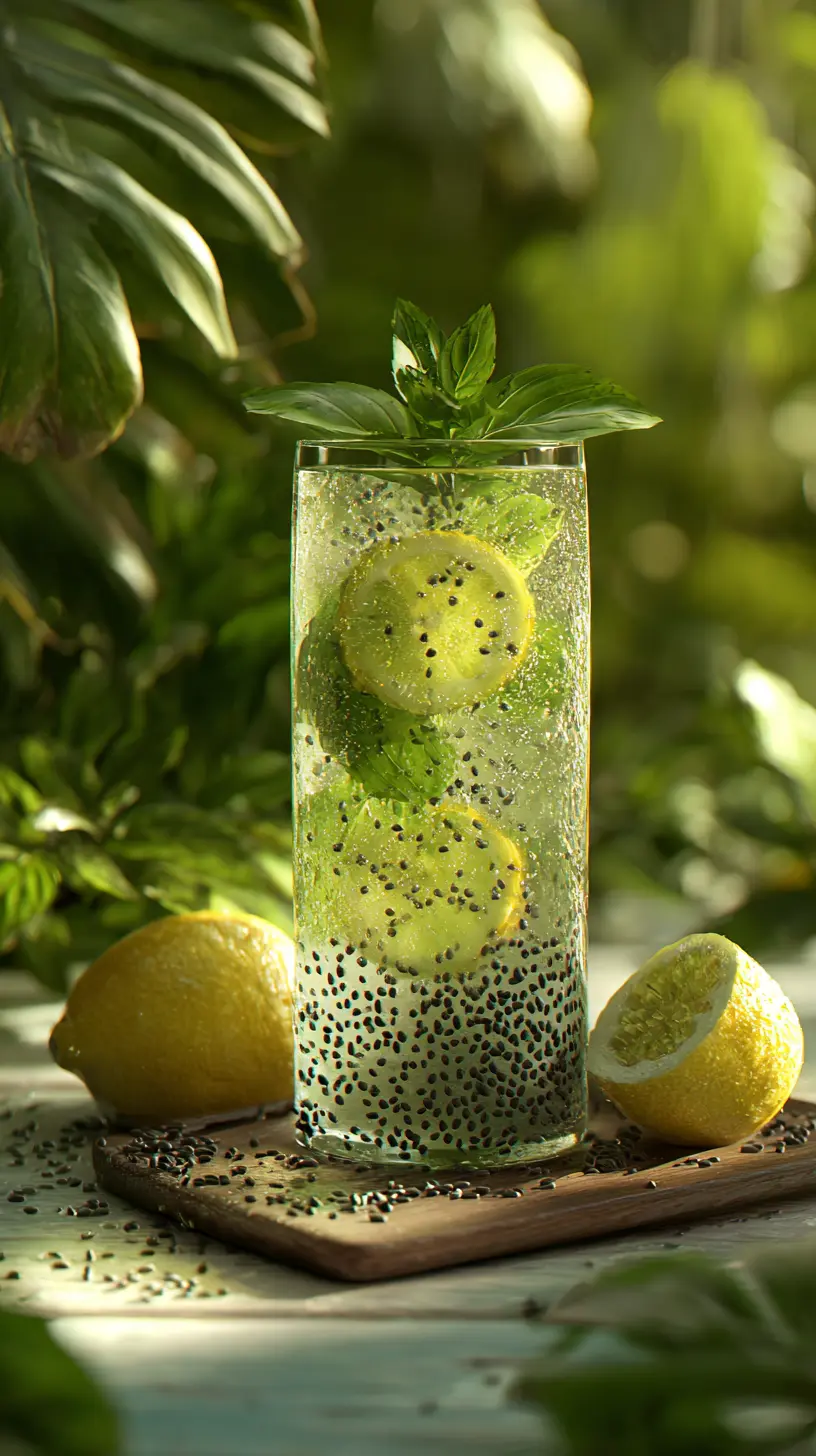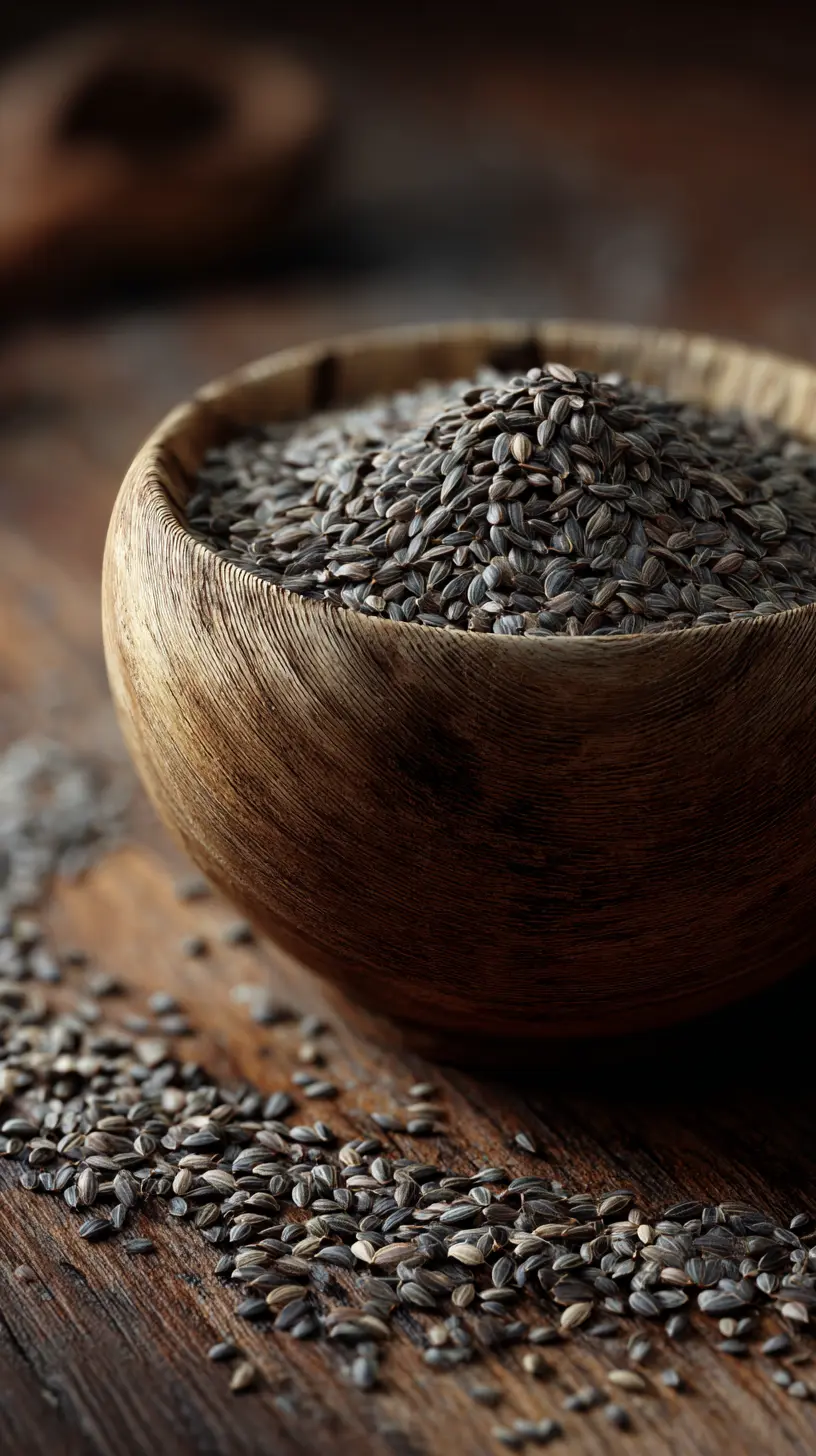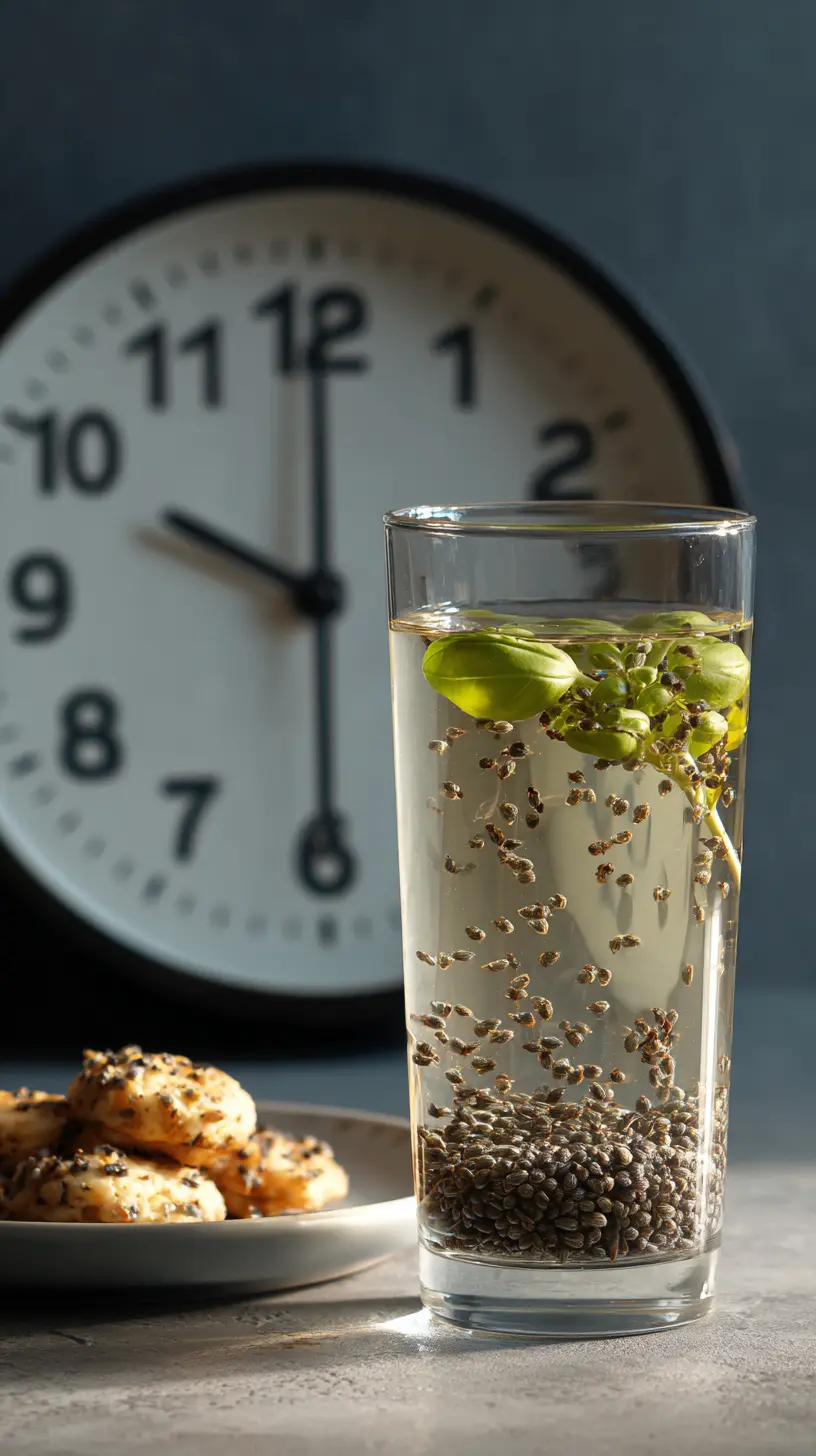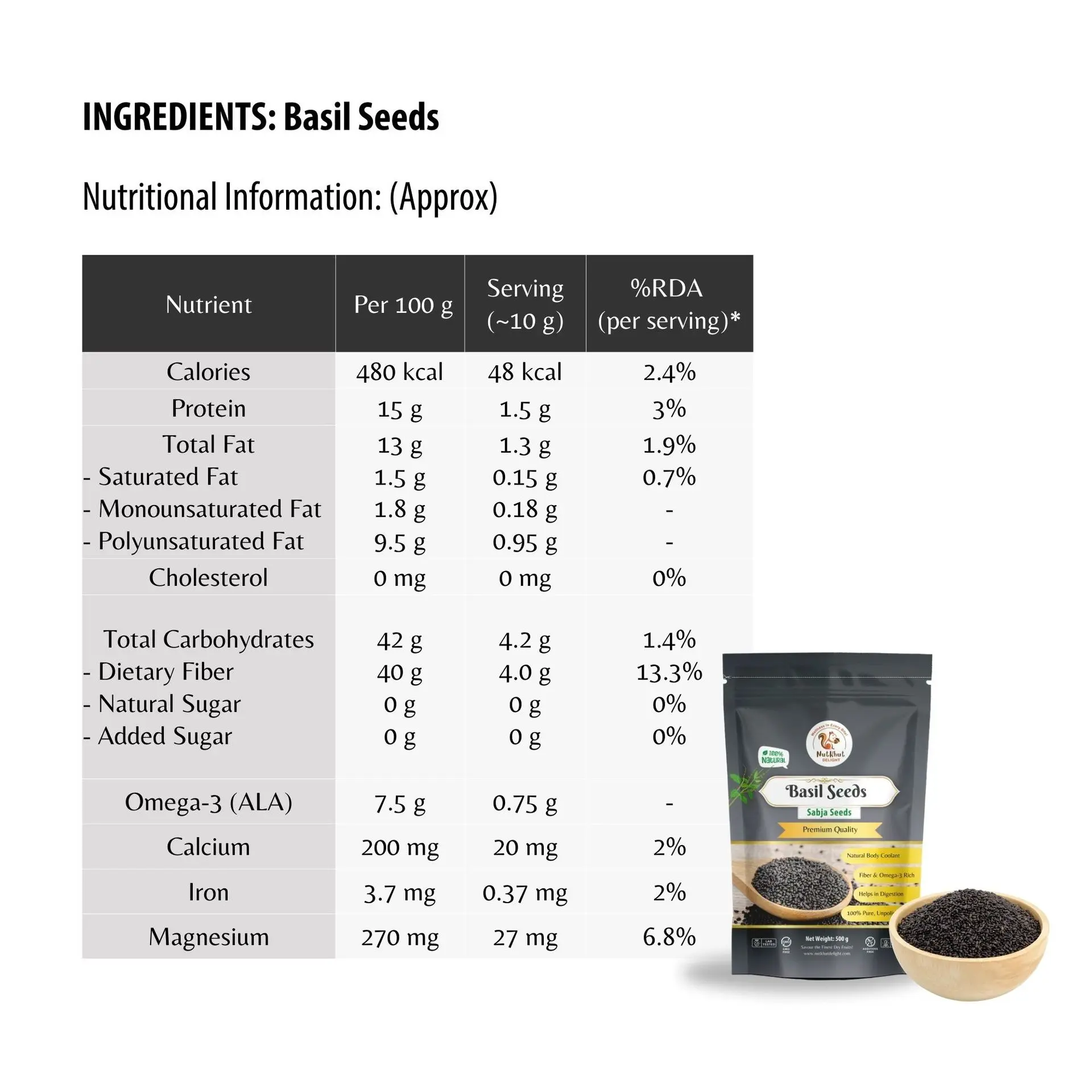Pregnancy is a beautiful journey—but also one filled with countless questions about what’s safe to eat and what’s not. One such food that often comes up is basil seeds (also known as sabja seeds or falooda seeds).
As a Doctor and Nutritionist with over a decade of experience, I’ve seen many expecting mothers ask, “Can I eat basil seeds during pregnancy?” The short answer? Yes, but with care.
Let’s take a closer look.
What Are Basil Seeds?
Basil seeds are tiny black seeds that come from the sweet basil plant (Ocimum basilicum). They're not the same as chia seeds, but similar in look and texture once soaked. These seeds are packed with nutrients and have long been used in traditional remedies across India and Southeast Asia.
Potential Benefits of Basil Seeds During Pregnancy
When taken in moderation, basil seeds can offer several benefits:
How Basil Seeds Help During Pregnancy

Helps with Constipation
Pregnancy hormones can slow down digestion. Basil seeds are rich in soluble fiber, which may help regulate bowel movements naturally—without needing over-the-counter laxatives.

A Natural Coolant
Feeling overheated? Basil seeds are known to have cooling properties, which can be especially comforting during hot weather or hormonal heat surges.

Rich in Minerals
They contain small amounts of calcium, magnesium, and iron—important for bone health and blood formation during pregnancy.

Supports Satiety
The seeds expand in water and help you feel full, which can curb untimely cravings or binge snacking.
Nutrition Profile of Basil Seeds

⚠️ Caution: When & How to Avoid
While basil seeds are generally safe, here are a few precautions:
❌ Don’t Eat Them Dry
Always soak the seeds in water for at least 15–20 minutes before consuming. Eating them dry may pose a choking hazard, especially when your digestive system is more sensitive during pregnancy.
❌ Avoid Overconsumption
A teaspoon a day is more than enough. Overeating may cause bloating or digestive discomfort.
❌ If You Have a History of Hormonal Imbalance or Uterine Sensitivity
Basil seeds contain phytoestrogens in very tiny amounts. While unlikely to cause issues in normal doses, if you have a history of PCOS, uterine fibroids, or hormone-sensitive conditions, do check with your doctor.
How to Include Basil Seeds Safely
- Soak 1 tsp in a glass of water, coconut water, or buttermilk
- Add to homemade lemonade or falooda (limit sugar)
- Mix into fruit salads or smoothies
Avoid packaged drinks or desserts that use basil seeds with artificial colors, syrups, or preservatives.
Final Word: Safe, With Common Sense
Pregnancy doesn’t mean giving up on healthy, traditional foods like basil seeds—it just means being mindful of how and how much. When soaked properly and eaten in moderation, basil seeds can be a refreshing and beneficial addition to your pregnancy diet.
As always, listen to your body. And when in doubt? Talk to your doctor. No blog (not even mine!) should replace personalized medical advice.
Stay well and happy!